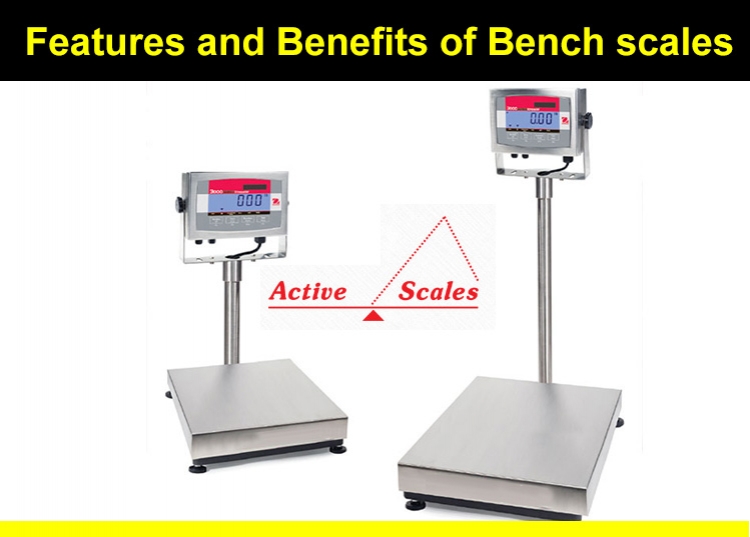 Image Designed by Freepik
Image Designed by Freepik
Features and Benefits of Bench Scales
Optimizing operation is one of the topmost priorities for businesses. Weighing scales help businesses operating in areas of manufacturing, supply chain, shipping, import, or export in streamlining their everyday operations. Losses resulting from inaccurate weight calculation of goods may have a direct monetary effect on businesses working in these sectors. Thus industrial scales have become an integral part of daily operations such enterprises.
Bench scale is one of the common weighing scales used in industries. Bench scales are known for their versatility. They are available in a wide variety of sizes, models, price ranges, and weighing capacities. Additionally, these scales are perfect for personal as well as industrial use. Whatever your weighing needs are, a bench-scale will bring easy, quick, and convenient weighing to your operations.
What is a Bench Scale?
The bench scale’s design allows them to be placed on a table or counter or any other flat surface during weighing. On the other hand, they consist of a weighing pan to hold the object and are often equipped with a weight indicator. A few of the scales come with a detachable weight indicator that can be mounted on the wall during the weighing process. It vastly simplifies the process of weighing and obtaining an accurate reading.
Moreover, these scales have a user-friendly interface. Thus any new user will require little or no training at all to operate these scales. Bench scales are available in different specifications to suit the spectrum of weighing requirements. For industries that need to weigh objects larger in size or belong to a higher weight range, bench scales are effective in these scenarios as well. Industries can easily find bench scales larger in size and with higher weighing capacity. Also, they are equipped with other unique features such as auto shutoff, adaptor, flexible print formats, etc.
Features of Bench Scale:
- Bench scales are small enough to fit into any type of setting.
- Most commonly available bench-scale sizes start from 12” x 12” to 30” x 30”.
- They are available in capacities ranging from 5kg/10lb to 500kg/1000lb.
- These scales often have stainless steel bodies, which makes them easier to maintain. Nevertheless, these scales are also available in mild steel construction.
- One can assemble or dis-assemble these scales with ease and does not need to be an expert.
- Due to the advancement in technology, bench scales today come with different electronic indicators, digital displays, etc. to assist users in collecting an accurate weight reading.
- If your need is to use the bench scale in numerous other locations apart from shop floor, such as on market stands or in other trade locations, then select a weighing scales that accommodates both battery and mains operation.
- Bench scales are also equipped with weight overload protection indicators.
- Other accessories include roller top conveyors, wheeled stands for portability, height-adjustable stands, dongle function for removal of the measurement cable, legal-for-trade use and tripod mounts, etc.
- Additionally, you can connect bench scales to your printers and computers to record readings.
Applications of Bench Scale:
- Bench scales are part of daily operations in many industries. However, the most common applications include checkweighing and counting.
- In the manufacturing industry, a lot of components are manufactured and handled on a daily basis. Thus such enterprises rely on bench scales for counting workpieces. Also, these scales are ideal for weighing inbound raw material as well as finished jobs after performing various processes.
- For the supply chain industry, import-export industry, bench scales are used for weighing packages in order to determine the exact cost of transportation.
- In general stores or grocery shops, these scales are used for weighing food items, fruits, and many more everyday items.
- On the flip side, though bench scales produce accurate readings, they cannot be used for precision weighing. Thus industries dealing with precious metals & stones cannot use these scales.
How to Select the Right Bench Scale:
- Before choosing a weighing scale for your company, keep the following points in mind.
- The food industry, pharmaceutical industries should use a weighing scale with a stainless steel base for dealing with liquid chemicals.
- Another most important consideration is the weighing capacity and size of the weighing platform.
- Bench scales that are portable include a rechargeable battery in addition to an AC adaptor. This feature gives the scale operators freedom to move the scale around and at places where electricity supply might not be available. However, consider a weighing scale with rechargeable batteries that can be used for extended periods of time without having to be recharged frequently.
- Also, ensure the weighing scale has features that enable you to connect it to computers, printers. You may also use the bench scale in conjunction with Adam DU for data analysis. This can also be helpful when taking inventory to keep track of the paperwork.
After all the due considerations, if you still feel any confusion about selecting the right scale for your enterprise, then feel free to contact us.
 Image Designed by Freepik
Image Designed by Freepik